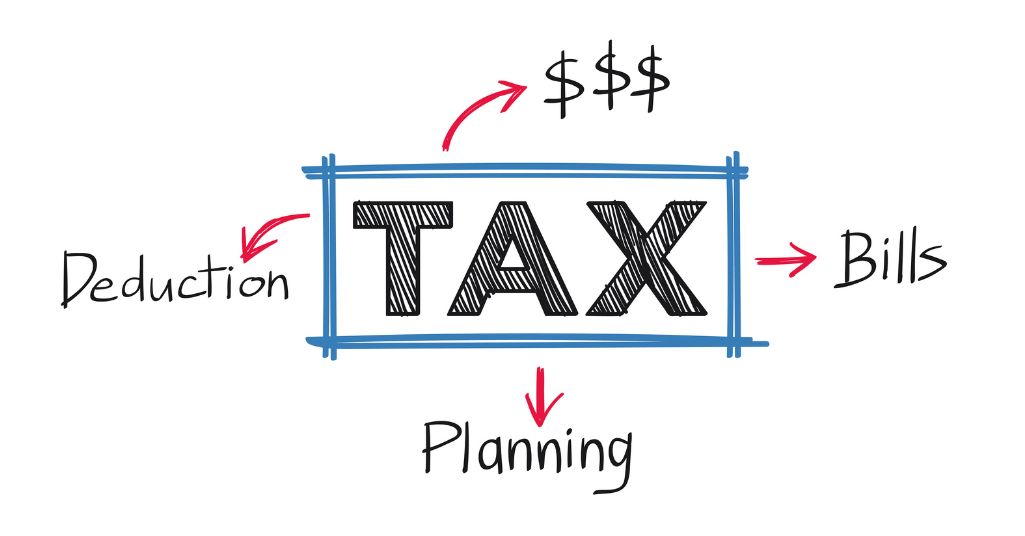Tax planning is an essential aspect of managing one’s finances responsibly. It involves organizing your financial affairs in a way that minimizes your tax liability while staying compliant with the tax laws of India. Income Tax Return (ITR) filing season provides an opportune time to assess your financial situation and explore various avenues for tax-saving investments and deductions. In this article, we will delve into tax planning strategies that can help you maximize your tax rebates and optimize your tax return in India.

Understanding Tax Rebate and Tax Deduction
Before we delve into tax planning, it is crucial to understand the difference between tax rebates and tax deductions:
Tax Rebate: A tax rebate is a direct reduction in the tax liability of an individual or entity. In simpler terms, if you are eligible for a tax rebate of, say, Rs. 5,000, it will be subtracted directly from the total tax amount you owe.
Tax Deduction: On the other hand, a tax deduction reduces your taxable income, which, in turn, reduces your overall tax liability. These deductions are available under various sections of the Income Tax Act, and the amount deducted is based on the specific investment or expense made by the taxpayer.
Tax Planning and Rebate Strategies
Utilizing Section 80C: Under Section 80C of the Income Tax Act, taxpayers can claim deductions up to Rs. 1.5 lakhs on investments made in specified financial instruments. Some popular options include Employee Provident Fund (EPF), Public Provident Fund (PPF), National Savings Certificate (NSC), Equity-Linked Savings Scheme (ELSS), and 5-year fixed deposits with banks.
Health Insurance Deduction (Section 80D): Taxpayers can claim deductions on the premium paid towards health insurance policies for themselves, their spouse, children, and parents. For individuals below 60 years of age, the maximum deduction is Rs. 25,000 (Rs. 50,000 for senior citizens). An additional deduction of Rs. 25,000 (Rs. 50,000 for senior citizens) can be claimed for buying health insurance for parents.
Home Loan Interest Deduction (Section 24): If you have taken a home loan, you can claim deductions on the interest paid on the loan under Section 24. The maximum deduction allowed is Rs. 2 lakhs for self-occupied properties. If the property is not self-occupied, there is no upper limit on the deduction.
HRA (House Rent Allowance) Exemption: If you live in a rented house and receive HRA as a part of your salary, you can claim an exemption on the HRA under Section 10(13A) of the Income Tax Act.
Leave Travel Allowance (LTA) Exemption: Employees can claim exemptions for expenses incurred on domestic travel for themselves and their families under Section 10(5) of the Income Tax Act.
NPS (National Pension System): Contributions to NPS can be claimed as deductions under Section 80CCD(1B), over and above the limit of Section 80C. An additional deduction of up to Rs. 50,000 can be claimed through this section.
Standard Deduction (For Salaried Individuals): Salaried individuals can claim a standard deduction of Rs. 50,000 from their taxable income for the financial year 2022-2023.
Education Loan Interest (Section 80E): Taxpayers can claim deductions on the interest paid on education loans for higher studies under Section 80E.
Donations to Charitable Institutions (Section 80G): Contributions made to specified charitable institutions are eligible for tax deductions under Section 80G.
Conclusion
Tax planning is not just about finding ways to reduce tax liability but also about making prudent financial decisions. By investing in tax-saving instruments and optimizing deductions, taxpayers can ensure financial security for themselves and their families while contributing to the growth of the economy through various investments and charitable contributions. It is crucial to stay updated with the latest changes in tax laws and consult with a tax advisor to ensure you make the most of the available tax rebates and deductions while filing your ITR in India. Remember that tax planning is a legal and responsible way to manage your finances and achieve your long-term financial goals.
Sure, let’s explain each topic in tax planning and rebate strategies in more detail
#TaxPlanning #TaxRebate #IncomeTax #ITR #Section80C #EPF #PPF #NSC #ELSS #FixedDeposits #HealthInsurance #Section80D #HomeLoanInterest #Section24 #HRAExemption #HouseRentAllowance #LTAExemption #LeaveTravelAllowance #NPS #NationalPensionSystem #StandardDeduction #EducationLoanInterest #Section80E #CharitableDonations #Section80G #FinancialManagement #TaxSavings #TaxDeductions #TaxableIncome #TaxLaws #FinancialPlanning #TaxAdvisor #FinancialSecurity #IndiaTax #ITRFiling #TaxTips #MoneyManagement #Investments #Savings #Finance101 #TaxSeason #TaxPreparation #TaxProfessionals #TaxFiling #TaxReturns #SmartFinancialDecisions #SaveTax #MaximizeRebates #FiscalResponsibility.

